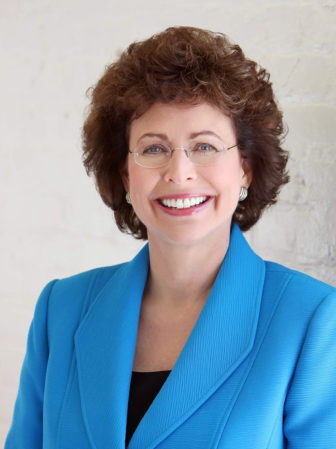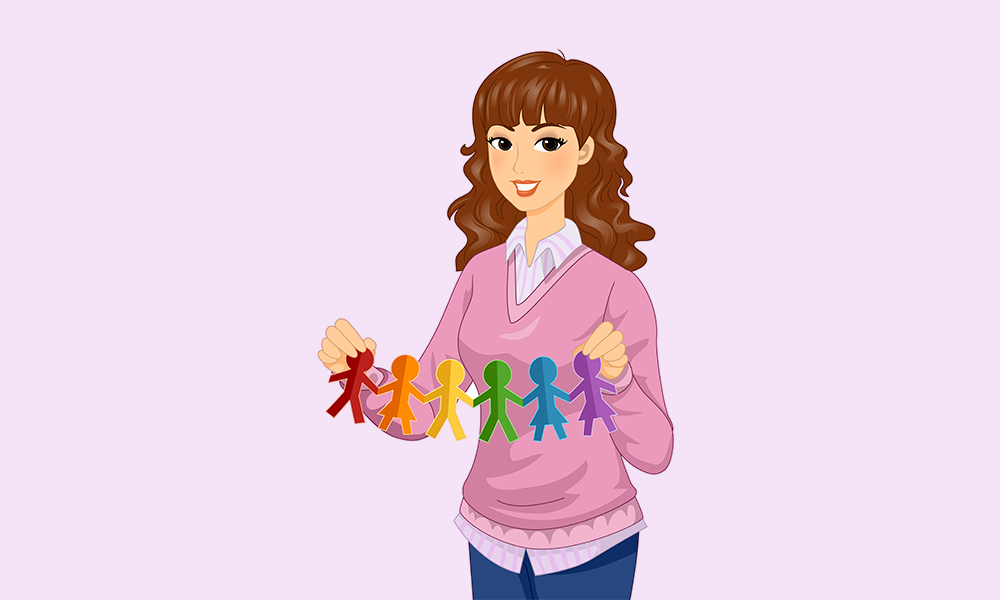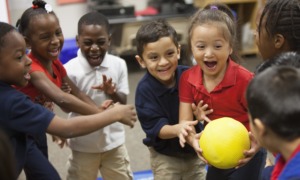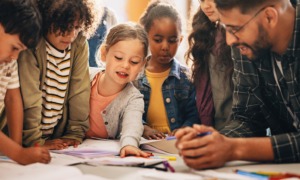Lesbian, gay, bisexual, transgender and queer/questioning youth face extremely high rates of bullying, depression and homelessness. At school, they often experience bullying and harassment, which can have dire negative consequences in their lives. LGBTQ youth often lack a support system or role models who can help them overcome obstacles and realize their full potential.
Since 1904, Big Brothers Big Sisters has been matching youth (“Littles”) with mentors (“Bigs”) in one-to-one mentoring relationships (“matches”). Our goal is for all LGBTQ youth to have access to a safe and supportive mentoring relationship with a caring adult. We embrace our LGBTQ youth and are committed to providing them with a caring, supportive adult.

Big Brothers Big Sisters of America
Pam Iorio
Only a fraction of youth mentoring programs intentionally provide formal mentoring services to LGBTQ youth. Out of an estimated 5,000 youth mentoring programs in the country, approximately 10 to 20 agencies — less than 1 percent of all youth mentoring programs operating today — have specific recruitment, screening, matching, training and case management policies and practices that address the unique risks and experiences of LGBTQ youth and their families. In addition, only a handful of empirical research studies have been conducted on how formal mentoring “works” for LGBTQ youth, with findings offering caution for mentoring programs that have not updated programming to ensure the safety of LGBTQ youth in their care.
Big Brothers Big Sisters of America is committed to making sure its programs are inclusive of LGBTQ youth and volunteers. Being inclusive is not enough; Big Brothers Big Sisters Affiliates must work with experts in the field, fully train staff on best practices and make key changes in processes and culture.
In September 2016, the Altria Group awarded Big Brothers Big Sisters of America a grant to begin a pilot project with five affiliates to help them review policies and procedures that would make them more inclusive of LGBTQ volunteers and youth. We have been committed and deliberate in our approach to providing mentors to LGBTQ youth.
Research and rethinking
We started this initiative by reviewing the research and talking with experts, including Christian Rummell (research board member, National Mentoring Resource Center). We began to train five of our local affiliates on how best to support LGBTQ youth and how to be fully inclusive of LGBTQ volunteers. Through this project, we developed training materials and studied various LGBTQ program models throughout the country.
Now in our second year of this pilot project, the initiative has expanded to 20 Big Brothers Big Sisters Affiliates. They are participating in staff training, examining and updating internal agency policies and procedures, connecting and collaborating with local community partners and testing resources with staff and volunteers.
Our goal is to ensure all youth have the guidance and support they need to reach their full potential. For Big Brothers Big Sisters Affiliates participating in the LGBTQ mentoring project, their capacity to better serve LGBTQ youth and families has improved, resulting in increased staff knowledge and changed practices. Some examples include: updating matching policies; shifting from a policy of nondiscrimination to a culture that is affirming and welcoming of all people, including the LGBTQ community; and rethinking how we do our day-to-day work to better serve all youth.
Through this initiative, BBBSA and our Affiliates have developed and tested new resources, tools and trainings that will be made available to our entire network.
Recommendations
We have learned a lot that we can share with other youth-serving organizations that want to better serve LGBTQ youth. Here is what we recommend:
- Start with an in-person staff training at each pilot site (or within your organization) to increase awareness of the needs of LGBTQ youth and the risks faced by LGBTQ youth.
- Recognize that each site, community and organization enters from a different starting point. Set up ways for sites or programs to provide coaching support to sites that are just starting out in their implementation of new practices.
- Identify internal program champions who will be responsible for benchmarking progress. Use an assessment tool to support these activities.
- Develop close partnerships with local LGBTQ youth-serving agencies that can support continuous improvement by facilitating ongoing training, acting as a referral agency and recruiting new LGBTQ Littles, Bigs and donors.
- Provide opportunities for staff to identify potential enhancements for recruitment, screening, training, match support, closure and evaluation that reflect the unique needs and experiences of diverse populations of LGBTQ youth. The use of a benchmarking tool can be helpful to assess progress.
- Leverage findings to identify “mission-critical” content needed to train and support mentors working with LGBTQ youth. Gain insight into how the organization implemented more inclusive policies and practices (i.e., what steps were taken, who was involved? what worked?).
- Document lessons learned, ideas for process and continuous improvement, and replication suggestions to inform rollout to other sites, organizations and programs.
Since 2014, Pam Iorio has been the president/CEO of Big Brothers Big Sisters of America, the country’s oldest and most effective mentoring organization. Before that, she served as mayor of Tampa, Fla., president of the Florida State Association of Supervisors of Elections, Hillsborough County, Fla.’s supervisor of elections and county commissioner.
































